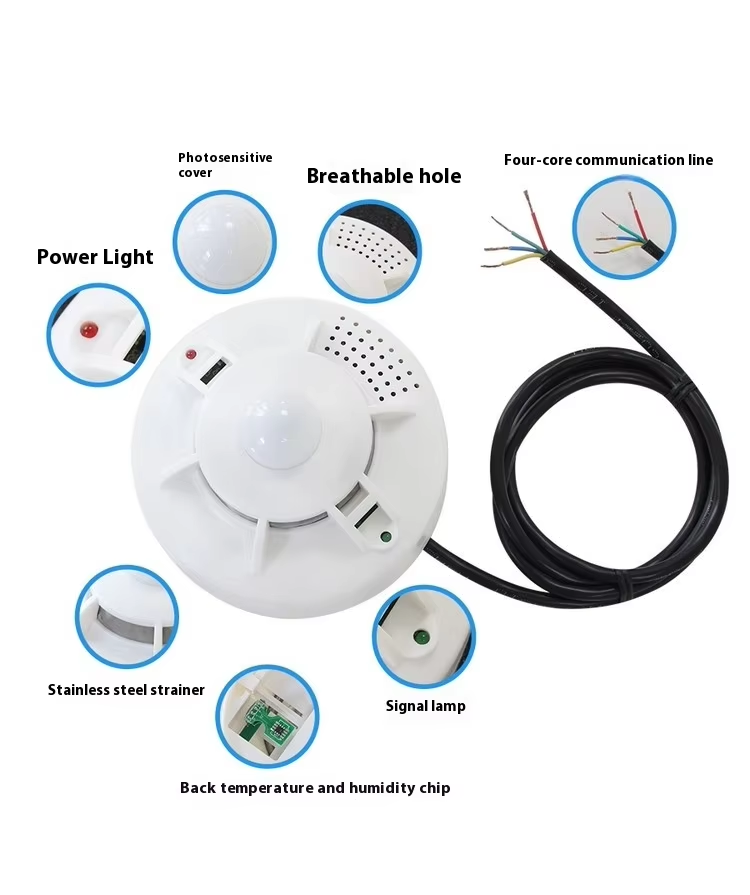As Saudi Arabia continues to advance its economic diversification strategy under “Vision 2030,” gas sensor technology has emerged as a key enabler for industrial modernization and environmental protection. From petrochemicals to smart cities, and from industrial safety to climate monitoring, this innovative technology is playing a pivotal role in helping the Kingdom achieve safer and more efficient industrial operations.
please contact Honde Technology Co., LTD.
Email: info@hondetech.com
Company website: www.hondetechco.com
Tel: +86-15210548582
1. Enhancing Industrial Safety and Preventing Toxic Gas Leaks
In Saudi Arabia’s vast oil and chemical industries, toxic gas leaks (such as hydrogen sulfide and nitrogen dioxide) can lead to severe accidents. Recently, energy giants like Saudi Aramco have begun deploying high-precision gas sensors to monitor hazardous gas concentrations in real time. For example, China’s Haimo Technologies developed a high-sulfur wet gas flowmeter for Abu Dhabi National Oil Company (ADNOC), which accurately measures natural gas flow containing hydrogen sulfide (H₂S), ensuring operational safety in extreme environments. Similar technologies are being adopted in Saudi Arabia’s petrochemical sector to mitigate explosion and poisoning risks.
Additionally, researchers at King Abdullah University of Science and Technology (KAUST) have developed IGZO thin-film transistor-based gas sensors capable of detecting nitrogen dioxide (NO₂) in industrial exhaust. These sensors are already integrated into distributed air quality monitoring networks in some Saudi industrial zones, helping factories optimize emission controls.
2. Advancing Smart Cities and the Digital Economy
A core objective of Saudi Arabia’s “Vision 2030″ is the development of smart cities, where gas sensors serve as a critical component of intelligent environmental monitoring systems. In mega-projects like NEOM, smart gas detection networks are being deployed to track air quality in real time, safeguarding public health. For instance, China’s Prosensings showcased its micro fuel cell gas sensors (e.g., the FC-CO-5000 carbon monoxide sensor) at INTERSEC Dubai 2025, attracting interest from Saudi smart city initiatives due to their high accuracy and low power consumption.
Moreover, Saudi Arabia is collaborating with global tech firms to integrate gas sensors into IoT platforms for industrial optimization. For example, Huawei Cloud’s data center in Riyadh provides AI-driven environmental monitoring solutions, where gas sensor data is used to predict pollution trends and adjust production strategies.
3. Supporting Green Industry and Carbon Neutrality Goals
To reduce carbon emissions, the Saudi government mandates that high-pollution industries install Continuous Emissions Monitoring Systems (CEMS), with gas sensors serving as a core technology. For instance, in Jubail Industrial City, companies like SABIC have adopted real-time gas analyzers to ensure compliance with international environmental standards.
Meanwhile, Saudi Arabia’s MODON (Industrial Cities and Technology Zones Authority) recently invested $453 million in upgrading industrial infrastructure, including the deployment of smart sensor networks for energy and water management. Gas sensors play a crucial role in these initiatives, helping factories minimize waste and enhance sustainability.
4. Future Outlook: Local R&D and Global Collaboration
Saudi Arabia is actively promoting domestic gas sensor R&D to reduce reliance on imported equipment. Institutions like KAUST have made breakthroughs in this field, with potential commercialization partnerships on the horizon. At the same time, Chinese companies such as Prosensings and Haimo Technologies are strengthening collaborations with Saudi entities to provide customized sensing solutions.
Conclusion
Gas sensor technology is reshaping Saudi Arabia’s industrial landscape—enhancing workplace safety, enabling smart cities, and supporting carbon neutrality efforts. As “Vision 2030″ progresses, the Kingdom is poised to become a major global hub for gas sensor applications and innovation.
Post time: Jun-18-2025


